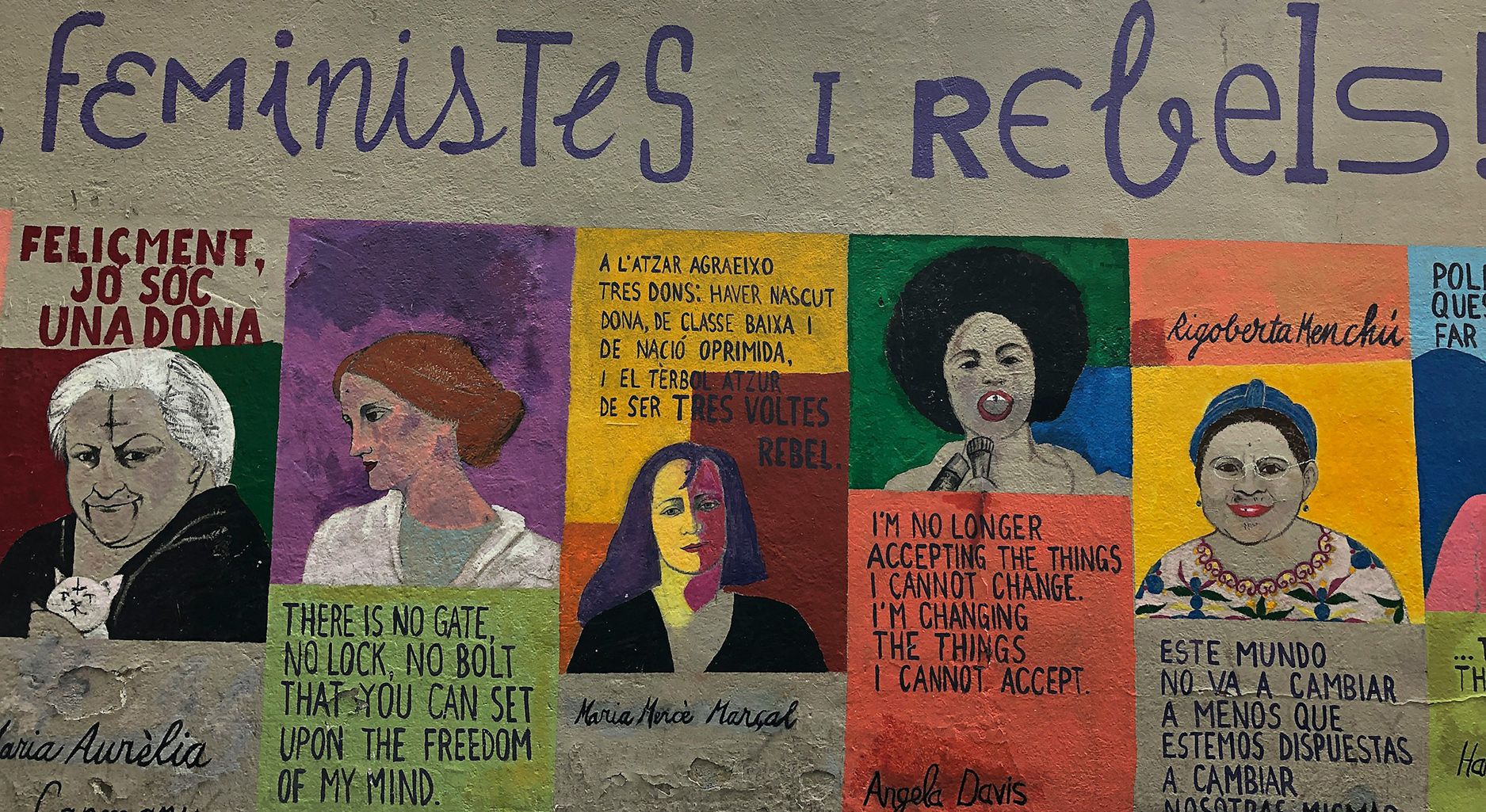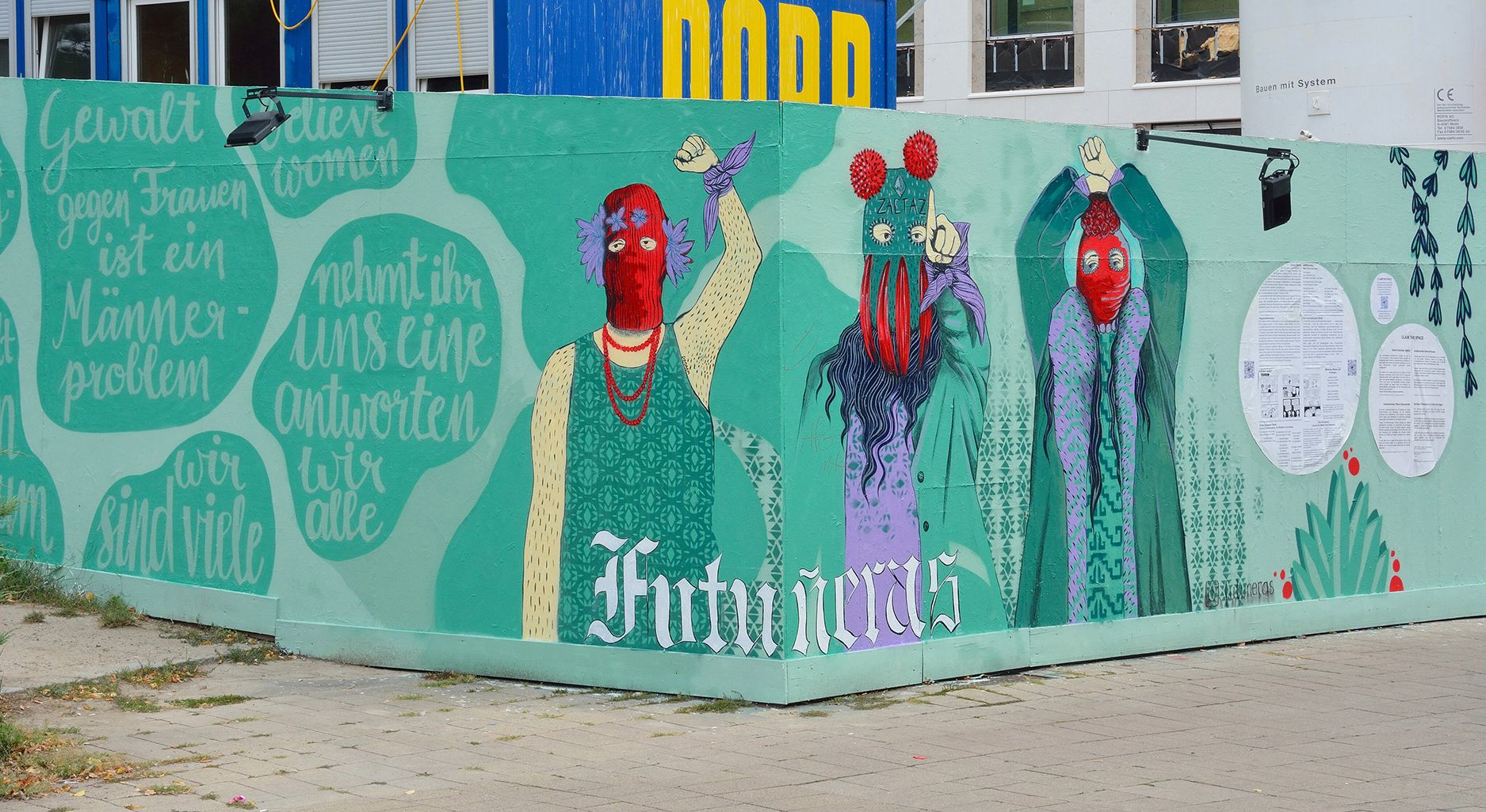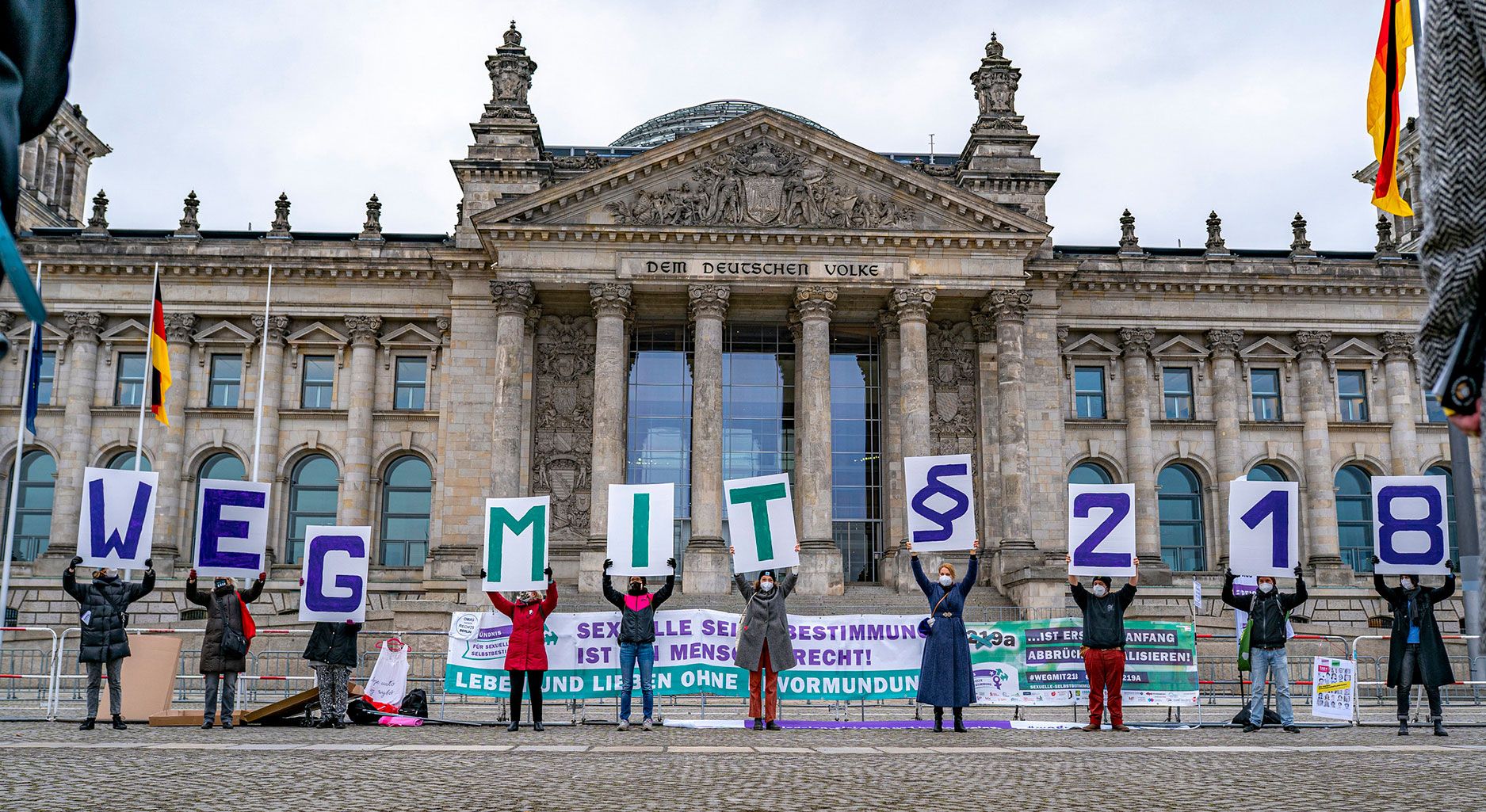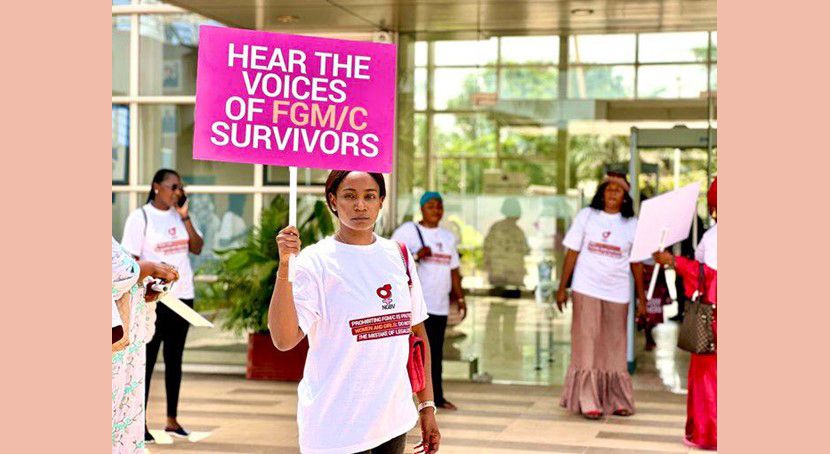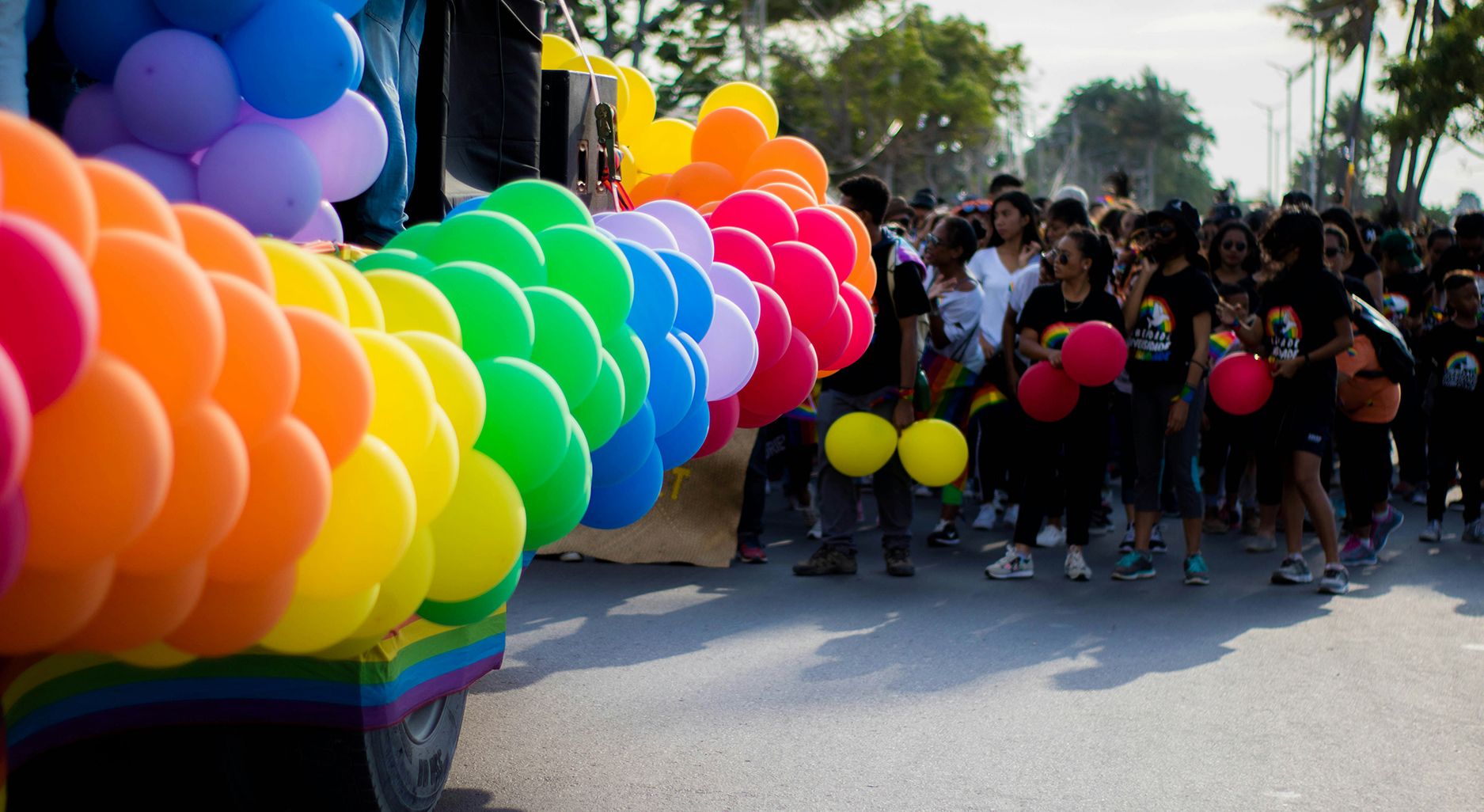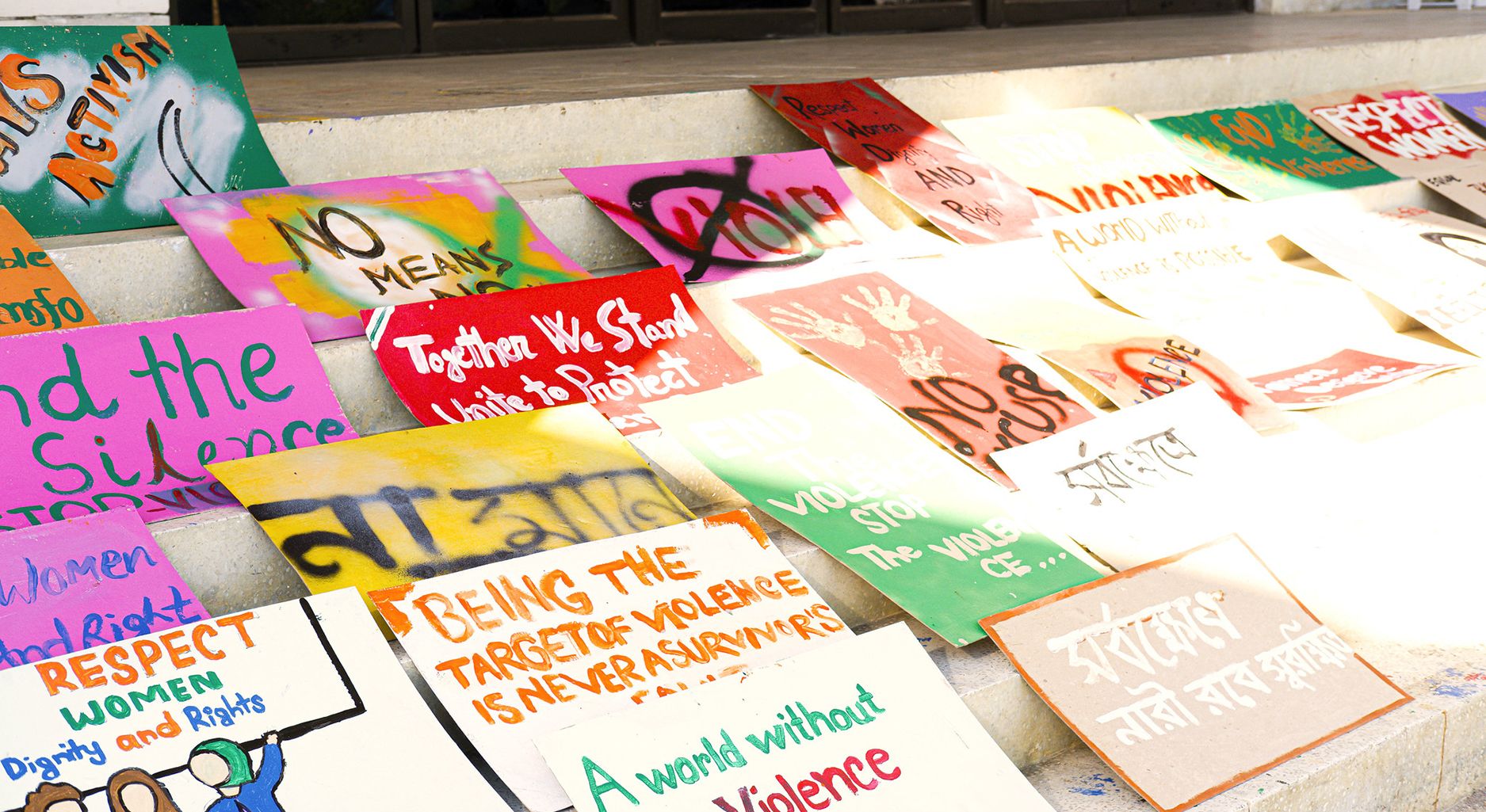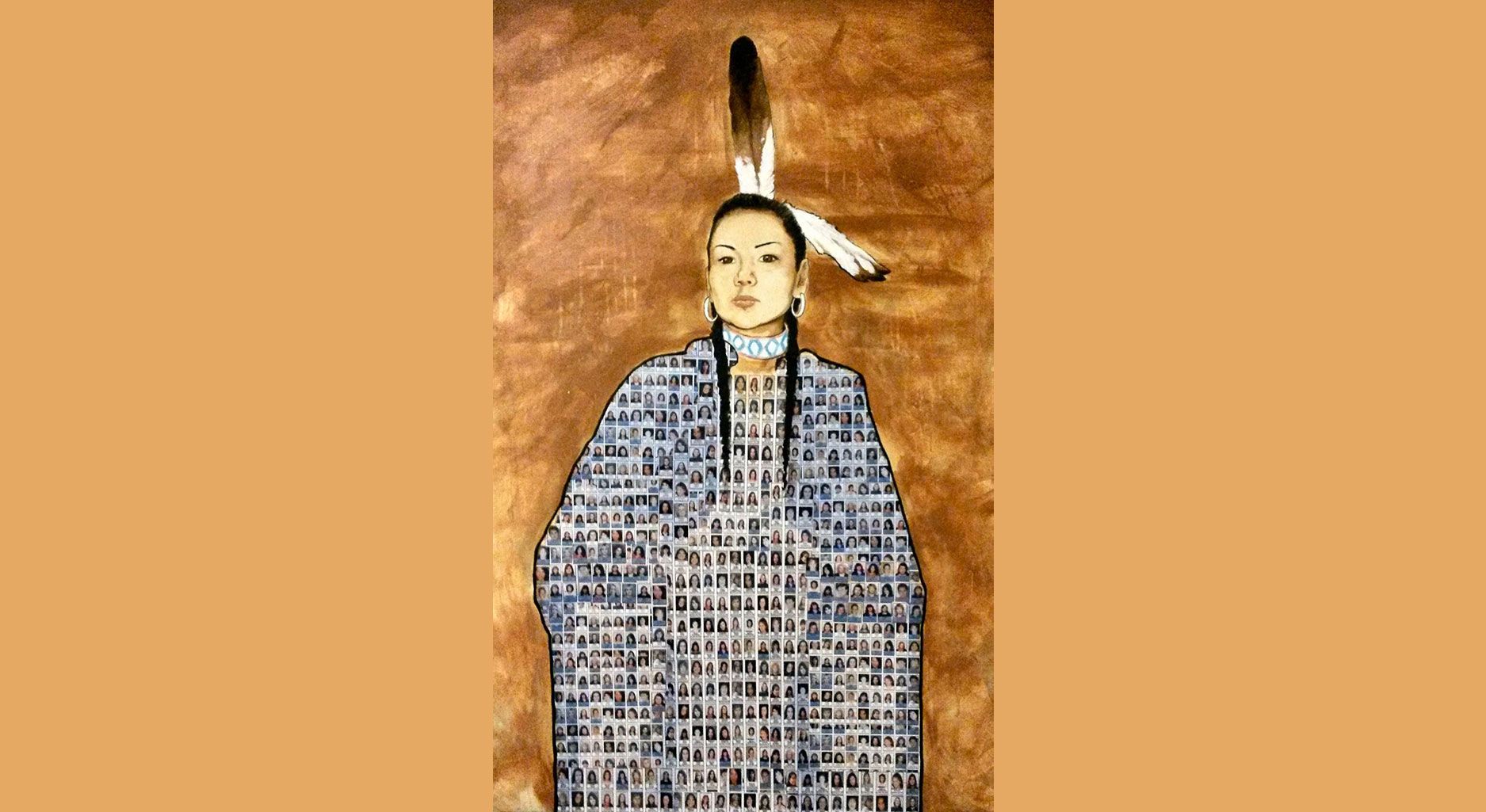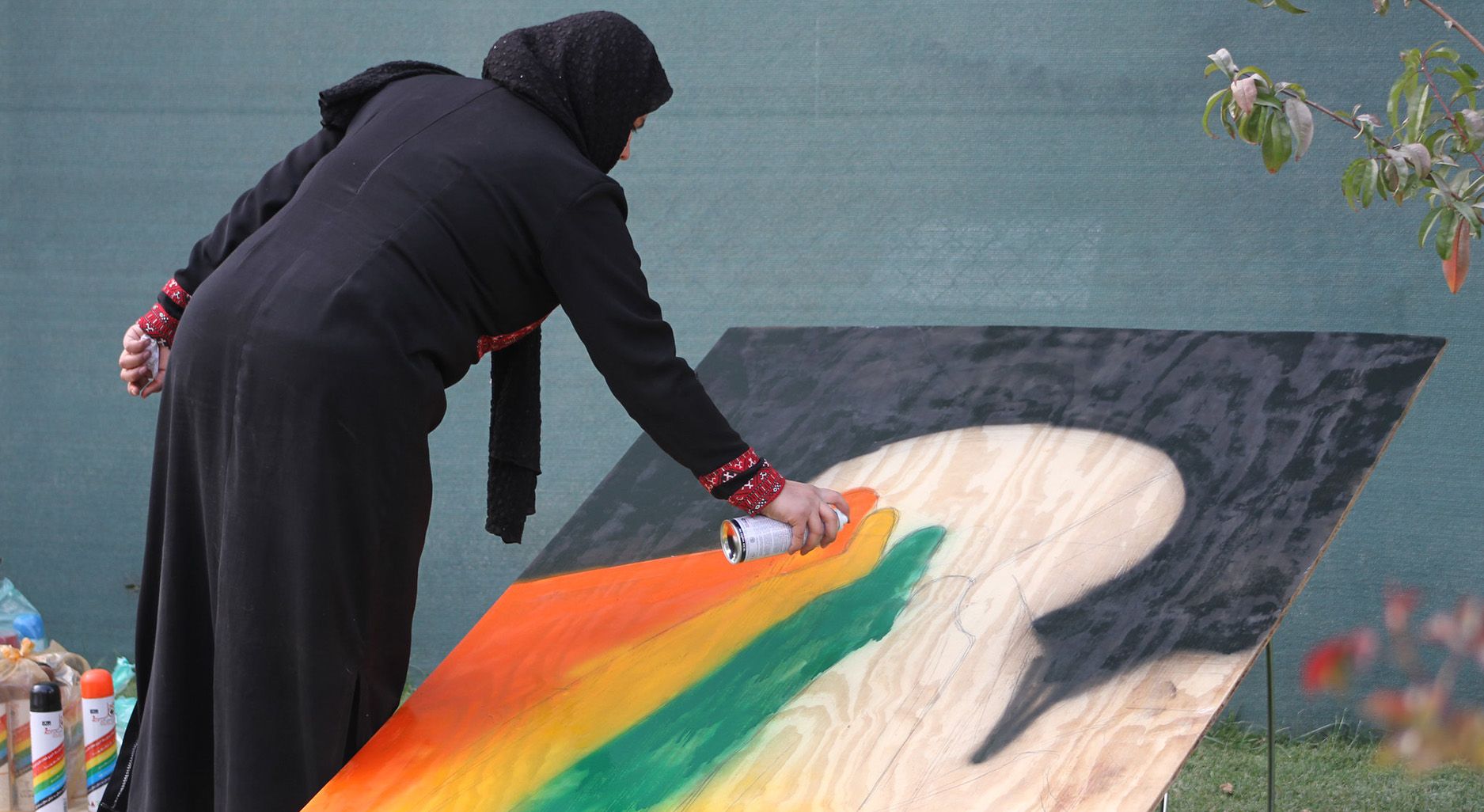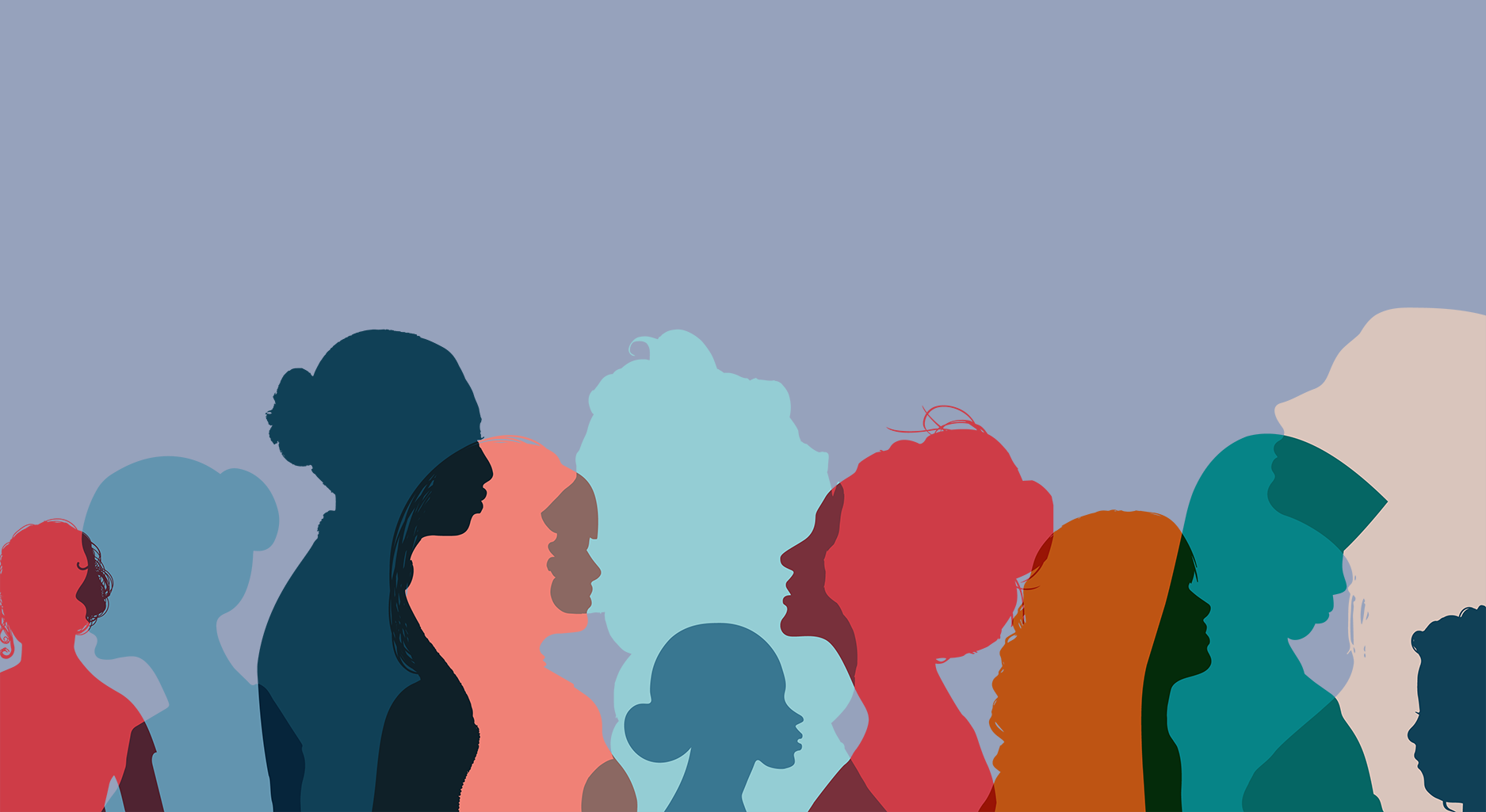Schlagwort: Feminismus
February 24 marked the third anniversary of Russia’s war of aggression against Ukraine. Various options for peace are being debated internationally, often without focusing on Ukrainian perspectives and interests. On the occasion of International Women’s Day, PRIF researcher Clara Perras conducted a written Interview with Olena Zinenko, a Ukrainian feminist peace activist and researcher from Kharkiv who currently lives and works in Bochum. She is lecturer at Karazin Kharkiv National University (online), guest researcher in IFHV Ruhr University Bochum and project coordinator at KRF “Public Alternative”.
Mehr Prävention gegen Femi(ni)zide: Warum das Gewalthilfegesetz zu kurz greift
Der Anstieg geschlechtsspezifischer Gewalt und die daraus resultierenden Debatten rücken zunehmend in den Fokus der öffentlichen Wahrnehmung. Fälle wie der Prozess um die Taten gegen Gisèle Pelicot, die Massenvergewaltigung und Ermordung einer indischen Ärztin, der gemeinsame Suizid von Frauen im Sudan zum Schutz vor weiteren Vergewaltigungen, die Ermordung der Olympionikin Rebecca Cheptegei durch ihren Ex-Partner oder das internationale Vergewaltiger-Netzwerk in Telegramgruppen verdeutlichen das globale und hohe Ausmaß geschlechtsspezifischer Gewalt. Auch in Deutschland spiegelt sich dies wider. Das BKA-Lagebild zu geschlechtspezifischer Gewalt gegen Frauen in Deutschland im Jahr 2024 zeigt alarmierende Zahlen: „Fast jeden Tag ein Femizid in Deutschland“.
TW: geschlechtsspezifische Gewalt
Der Kampf um Körper und Identität: Rückschritte sind zu befürchten
Das Recht auf Selbstbestimmung und Souveränität über den eigenen Körper und die eigene Identität bleiben auch im Bundestagswahlkampf 2025 ein umstrittenes Thema. Die Debatten stehen stellvertretend für die politische Aushandlung zwischen der Aufrechterhaltung rechter und (wert-)konservativer patriarchaler Geschlechterrollen einerseits und progressiven sowie feministischen Positionen andererseits. Mit dem vorzeitigen Ende der Ampel-Regierung kündigt sich ein politischer Wandel an, der sich auch auf den Zugang zu sexueller und reproduktiver Gesundheit und Rechten (SRGR) negativ auswirken könnte.
Trump, White, Rogan – Männlichkeit, Härte und Faschismus: eine nicht ganz so neue Verbindung toxischer Männlichkeitskultur
Nun ist es Gewissheit: Donald J. Trump wird die USA für eine weitere Amtszeit regieren. Viel wurde in den vergangenen Wochen über Trumps Wahlkampfstrategie diskutiert. Obwohl der Erfolg auf eine Vielzahl von Faktoren zurückzuführen ist, steht fest: Trump hat mit enormen Mobilisierungsaufwand die spezifische Zielgruppe junger Männer adressiert. Die Auftritte fanden häufig über sogenannte Alternativmedien in einem maskulinen, heterosexuellen und gewaltaffinen Umfeld mit rechtsoffenen bis rechtsextremen Persönlichkeiten statt. Dies gilt es ernst zu nehmen und in einem multifaktoriellen Kontext zu analysieren.
Keeping up the Ban against FGM/C: A Strong Signal for Reproductive Health and Rights from The Gambia to the World
Despite a 2015 ban, Female Genital Mutilation/Cutting (FGM/C) remains practiced in The Gambia. A recent bill to repeal the ban now endangered legislative progress so many Gambian women have been holding onto as well as longstanding efforts of civil society organizations. On 15 July 2024, following extensive community engagement and advocacy, the bill was successfully rejected. In the face of a global backlash against sexual and reproductive health and rights (SRHR), what can activists worldwide learn from this success? This blog features an interview with Fatou Baldeh, founder of Women in Liberation and Leadership (WILL) and a leading activist in maintaining the FGM/C ban.
Backlash Against LGBTIQ+ Rights in Peacebuilding: Raising Awareness During Pride Month
June is celebrated as pride month worldwide. It highlights the achievements that have been made regarding the rights of people with diverse sexual orientation, gender identity and expressions, or sex characteristics. It also raises awareness about ongoing structural discrimination, inequality and violence. In peacebuilding contexts, individuals with diverse SOGIESC encounter severe backlash from anti-feminist actors aiming at the reversal of achievements as well as resistance from those trying to maintain the status quo.
Shattered Lives: The Global Crisis of Sexual Violence in Conflict
June 19th is the international day for the elimination of sexual violence in conflict. It is a day of silent remembrance, as the crime of conflict-related sexual violence (CRSV) is not a priority on political agendas. Survivors are often too traumatized to report, or experience further criminalization and stigmatization. The recent annual report of the UN Secretary General stresses the continuous prevalence and the global scale of this horrific crime. This blog summarizes its core findings.
Time for True Stories: Stereotypes Absolve Gendered Violence against Indigenous in Canada
Across North America, May 5 is a day to commemorate the thousands of missing and murdered Indigenous women, girls, two-spirit, and gender diverse people. Beyond giving space for remembrance and mourning, May 5 is connected to the aims of building knowledge, raising public awareness, stimulating solidarity and underlining the need for action to end the disproportionate deadly violence. While politics and the judicial system are reminded on this day to deliver rights and justice, another important factor for change should also gain attention: the collective imagery of the Indigenous needs to be decolonized to transform the systemic structures of violence.
Zum Internationalen Frauentag: Die Situation von Frauen in Afghanistan
Seit der Machtübernahme der Taliban am 15. August 2021 hat sich die Situation von Frauen und Mädchen in Afghanistan dramatisch verschlechtert. Anlässlich des Internationalen Frauentags haben die PRIF-Forscherinnen Dr. habil. Simone Wisotzki und Irem Demirci mit Dr. Alema Alema gesprochen, die in Afghanistan stellvertretende Friedensministerin war und heute als Afghanistan-Referentin bei Pro Asyl tätig ist.
New Guidelines for Germany’s Feminist Foreign Policy: The Need To Translate Norms into Political Practice
Feminist foreign policy (FFP) should aim at revising patriarchal and colonial power structures, changing exclusive male-dominated decision-making processes, and designing international politics from a perspective of gender justice. With their new guidelines, the German Foreign Office promises ambitious aims to promote gender-sensitive human rights, strengthen the participation of women at all political levels and ensure a gender-equal access to resources and budgets. However, the implementation of these guidelines remains a key factor for success and some feminist challenges have not been properly addressed.
